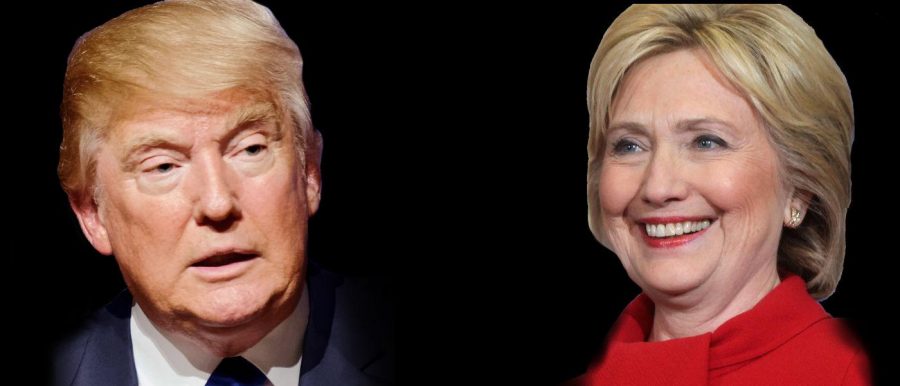Hillary Clinton and Donald Trump, as the presumptive nominees for their respective parties, turn their focus towards the general election in November: discussing their opponent’s policy ideas in speeches, bashing one another on Twitter and finding the perfect vice presidential candidate.
While the office of vice president is often ridiculed for its lack of power, the choice of a vice president is immensely important in a general election. Eight years ago, Republican nominee John McCain selected the vibrant, young female governor of Alaska, Sarah Palin, and his choice contributed to his election defeat.
Often, candidates select a running mate that appeals to a different group of constituents to expand his or her pool of voters. For example, Barack Obama, a young, less experienced African American senator from Illinois, chose Joe Biden, an older, veteran (and white) senator.
Some candidates choose vice presidents that appeal more to centrists while others choose based on geographic influence of their running mate. Ultimately, while the reasons to select differing vice presidents may change, the selection can greatly affect the public image of a ticket.
Let’s take a look at who the candidates are considering.
Presumptive Democratic Nominee Hillary Clinton:
Elizabeth Warren: Bernie Sanders’ leftist charge towards the presidency and his substantial success reflects on the populist electorate, and Clinton may want to take advantage of this when considering possible VPs. Elizabeth Warren, a senator from Massachusetts known for her anti-Wall Street stance and extremely progressive views, would likely bring excitement to the campaign, which would be necessary to defeat the electric and animated Trump campaign.
However, political pundits question whether Warren would overshadow the less-popular Clinton as well as whether the two driven women would work well together due to their policy disagreements in the past.
Tim Kaine: Virginia Senator and Former Democratic National Committee Chair, Tim Kaine, does not bring the excitement that Warren does but would be a credible and likeable vice presidential nominee. Fluent in Spanish, Kaine could aid the Clinton campaign in attacking Trump on Spanish language media and garnering the Latino vote.
Likely bringing in the support of the swing state of Virginia, Kaine could help with the electoral map and would serve as a solid, moderate choice for VP.
Sherrod Brown: While Clinton aides believe Ohio Senator Sherrod Brown is favorite of the Democratic nominee, Brown’s senate seat may be too valuable. If he was selected, Republican governor John Kasich would appoint his replacement, and in this contentious senate race, Democrats do not wish to lose a valuable seat.
The Clinton campaign has also considered Obama appointees, Agriculture Secretary Tom Vilsack, Labor Secretary Tom Perez, and Housing Secretary Julian Castro, along with Representative Xavier Becerra.
Presumptive Republican Nominee Donald Trump:
Newt Gingrich: Newt Gingrich, a former Speaker of the House and congressional veteran, would satisfy electoral cries for more political experience in the Trump campaign. However, after Trump has repeatedly condemned and distanced himself from the Washington insider elite, his voters may not appreciate him abandoning his outsider status.
Gingrich, like Trump, also has a closet of divorced wives, extramarital affairs and political scandals, leading to his resignation as speaker in 1998. With all this baggage, Gingrich still knows how to take on the Clintons as he did during his term as speaker by leading the charge on the Monica Lewinski scandal.
Chris Christie: Chris Christie, New Jersey governor, was one of the first high-profile Republicans to endorse Trump (albeit, he was repeatedly mocked for his blank-eyed stare) and has repeatedly shown his support for the controversial candidate.
While Christie does govern a red state, his support is currently as an abysmal 29 percent, according to a May Quinnipiac University Poll. Furthermore, the two men have a similar brash and loud style, and this similarity will not likely increase his voter pool.
Mike Pence: In order to help Trump appear to be a credible candidate, Indiana Governor Mike Pence would provide much needed political experience to the Republican ticket. A career politician, Pence would quell fears of an under-qualified White House, and his proximity to key mid-western states, including Ohio, Wisconsin and Michigan, could help Trump win over the rust belt.
However, Pence did – tepidly – endorse Ted Cruz, which could hurt his chances of clinching the vice presidential nomination. Also, Pence will be running for reelection, and Indiana law prevents Pence from running in both elections, so this decision would be risky for the life-long politician.
While these three men appear to be the frontrunners according to Trump insiders, Trump’s decision making has often strayed from the book, so his upcoming choice is still unclear.


